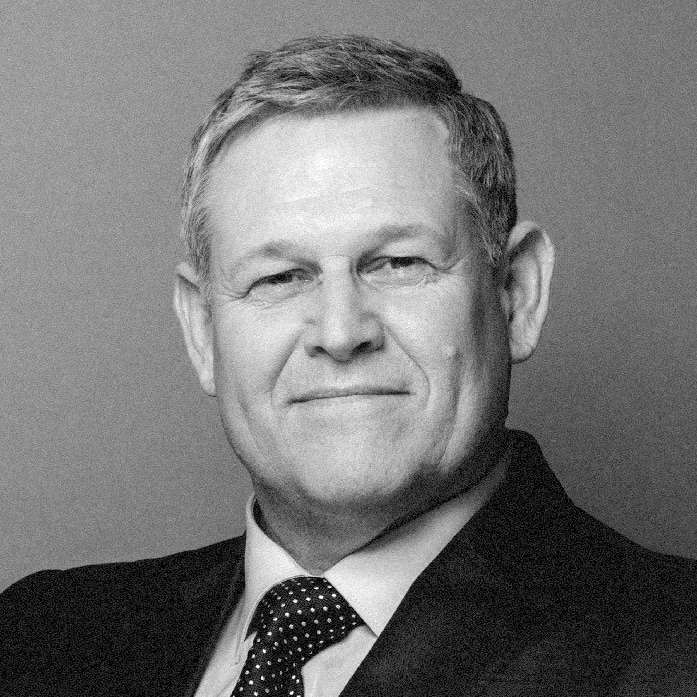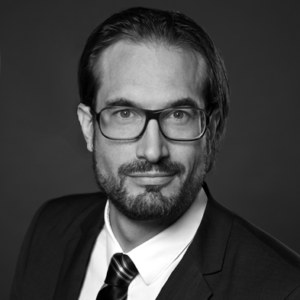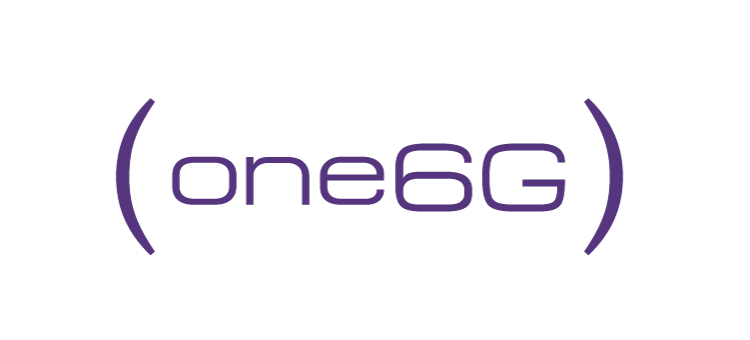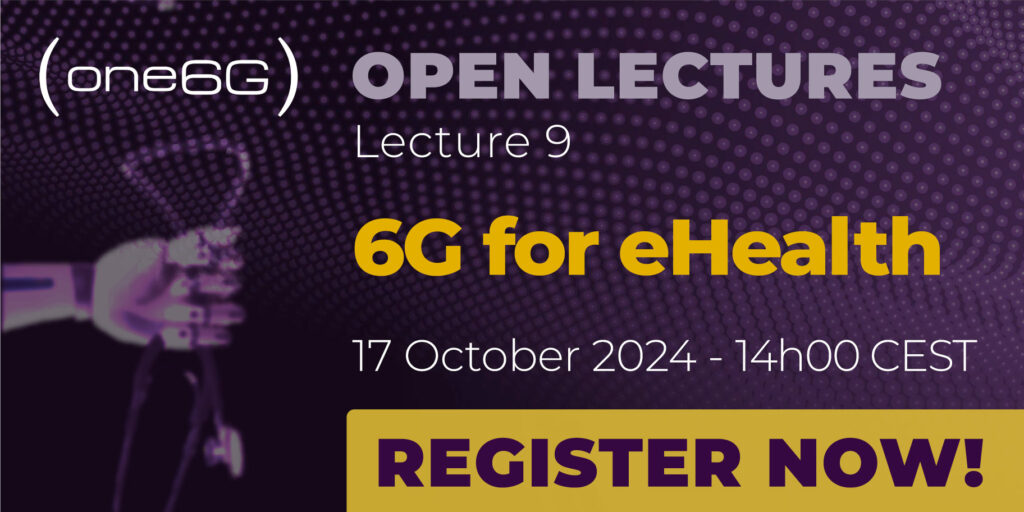Open Lecture 9 – 6G for eHealth
Following the success of the previous Open Lectures, the Association is happy to confirm that Open Lecture 9 will take place on October 17, 2024, at 14h00 CEST, covering the subject of 6G for eHealth.
Model-based medicine is a vision identified by medical experts that can tackle challenges in the healthcare sector such as the increase in healthcare demand and lack of healthcare personnel. In this vision, evidence of healthcare processes (e.g., outcome given a medical treatment) is generated by accurate models mapped in real-time to patients, mobile robots and medical devices. A medical robotics application that is benefited from said accurate patient models (e.g., a patient-specific lower limb mechanics model), is the dynamic reconfiguration of rehabilitation robotics (e.g., exo-skeleton for mobility rehabilitation due to accident). Patient-specific adaptations of the exo-skeleton in a real-time control loop closed over the future 6G mobile radio system can enable effective rehabilitation therapies for patients at home. One enabler to build these accurate patient-specific models is to securely track real-time medical relevant information with vital sign wireless sensing with the 6G mobile radio system. Another enabler is the recently created European Health Data Space, which sets a common framework for the use of health data for research and innovation in the EU. Such regulatory developments are expected to positively influence the model-based medicine vision. Technological developments such as the upcoming 6G mobile radio system have tremendous potential to enable the model-based vision. Concretely, the future 6G mobile radio system can enable the realization of multiple novel eHealth use cases related to medical robotics applications, vital sign wireless sensing, immersive & ubiquitous treatment and medical data & model sharing. Altogether, the use cases represent different components of the model-based medicine vision, however, they are also independent in the sense that their realization could be achieved without a model-based medicine vision.
The one6G Open Lecture 9 will be centered around vital sign wireless sensing for medical applications, model-based medicine, promising medical robotics applications (e.g., rehabilitation robotics) with 6G, an ecosystem to facilitate secure exchange of health data and potential 6G use cases from eHealth perspective. The event will feature top-class speakers who will present and discuss visions, potential and open challenges of the future 6G mobile radio system tailored for the eHealth domain.
Join us on October 17, 2024, at 2 p.m. CEST to learn more!
AGENDA
14:00 Welcome & opening

Jose Perdomo
6GeHealth one6G WI Rapporteur

Martin Schubert – Moderator
Huawei Technologies
14:05 Contactless Vital Sign Sensing for Medical Applications

Fabian Michler
Co-CEO & Co-founder, Sykno GmbH
14:25 Rehabilitation Robotics

Emmanouil Spyrakos-Papastavridis
Senior Lecturer in Engineering, King’s College London
14:45 European Health Data Slice: Connecting European Health Data Spaces

Christoph Thuemmler
Chief Medical Officer, 6G Health Institute
15:05 Model-Guided Medicine

Dirk Wilhelm
Chair of Research Group Minimally invasive Interdisciplinary Therapeutical Interventions (MITI)
15:25 6G and eHealth: Use Cases and Potential Service Requirements

Jose Perdomo
6GeHealth one6G WI Rapporteur
15:45 Q&A session and closing remarks

